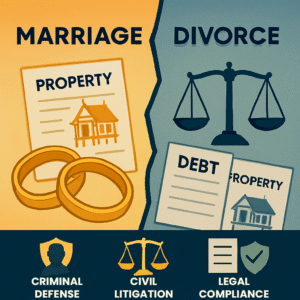Do you know! Thailand is now a business-friendly environment by offering diverse structures to maintain economic growth and a level of attractiveness for foreign investors. Thailand has various forms of structures that foreign businesses can utilize to begin operations in the country. There are currently seven distinct types of business structures that foreigners can utilize in Thailand.
I. Joint venture
II. Partnership
III. Branch office
IV. Regional office
V. Limited company
VI. Sole proprietorship
VII. Representative office
𝗝𝗼𝗶𝗻𝘁 𝗩𝗲𝗻𝘁𝘂𝗿𝗲𝘀 (𝗝𝗩𝘀):
Popular for collaboration, JVs require registration as a
Foreign Business if majority-owned by foreigners.
𝗣𝗮𝗿𝘁𝗻𝗲𝗿𝘀𝗵𝗶𝗽𝘀:
While not usually favoured by foreign investors, there exist
three types of partnerships in Thailand. Unregistered, Registered ordinary, and
Limited partnerships.
𝗕𝗿𝗮𝗻𝗰𝗵 𝗢𝗳𝗳𝗶𝗰𝗲𝘀:
Foreign financial institutions prefer this structure, maintaining
full ownership with minimum working capital requirements.
𝗥𝗲𝗴𝗶𝗼𝗻𝗮𝗹 𝗢𝗳𝗳𝗶𝗰𝗲𝘀:
Require an active branch in Asia and a Foreign Business
License, with restrictions on profit-making activities.
𝗟𝗶𝗺𝗶𝘁𝗲𝗱 𝗖𝗼𝗺𝗽𝗮𝗻𝗶𝗲𝘀:
Governed by specific laws, private limited companies are most
popular, allowing full foreign ownership.
𝗦𝗼𝗹𝗲 𝗣𝗿𝗼𝗽𝗿𝗶𝗲𝘁𝗼𝗿𝘀𝗵𝗶𝗽:
Limited applicability for foreigners, primarily for Americans
under the US-Thailand Treaty of Amity.
𝗥𝗲𝗽𝗿𝗲𝘀𝗲𝗻𝘁𝗮𝘁𝗶𝘃𝗲 𝗢𝗳𝗳𝗶𝗰𝗲𝘀:
Engage in cross-border trade without profit-making activities.
𝗥𝗲𝘀𝘁𝗿𝗶𝗰𝘁𝗶𝗼𝗻𝘀 𝗼𝗻 𝗙𝗼𝗿𝗲𝗶𝗴𝗻 𝗢𝘄𝗻𝗲𝗿𝘀𝗵𝗶𝗽:
Joint ventures and methods like obtaining a Foreign Business
License, utilizing BOI privileges, or the Treaty of Amity for US citizens help
navigate restrictions.
𝗛𝗼𝘄 𝗪𝗦𝗥 𝗜𝗻𝘁𝗲𝗿𝗻𝗮𝘁𝗶𝗼𝗻𝗮𝗹 𝗖𝗮𝗻 𝗛𝗲𝗹𝗽:
We specialize in guiding foreigners through establishing
businesses in Thailand. Ready to seize business opportunities in Thailand?
Contact us today!
𝗖𝗼𝗻𝘁𝗮𝗰𝘁 𝘂𝘀:
WSR International Co., Ltd.
Chartered Square Unit 16-05, 152 North Sathorn, Khwaeng
Silom, Khet Bang Rak, Bangkok 10500 VAT Registration no: 0905565001881
Phone: 6692 616 4423
Email: info@wsrlawgroup.com





